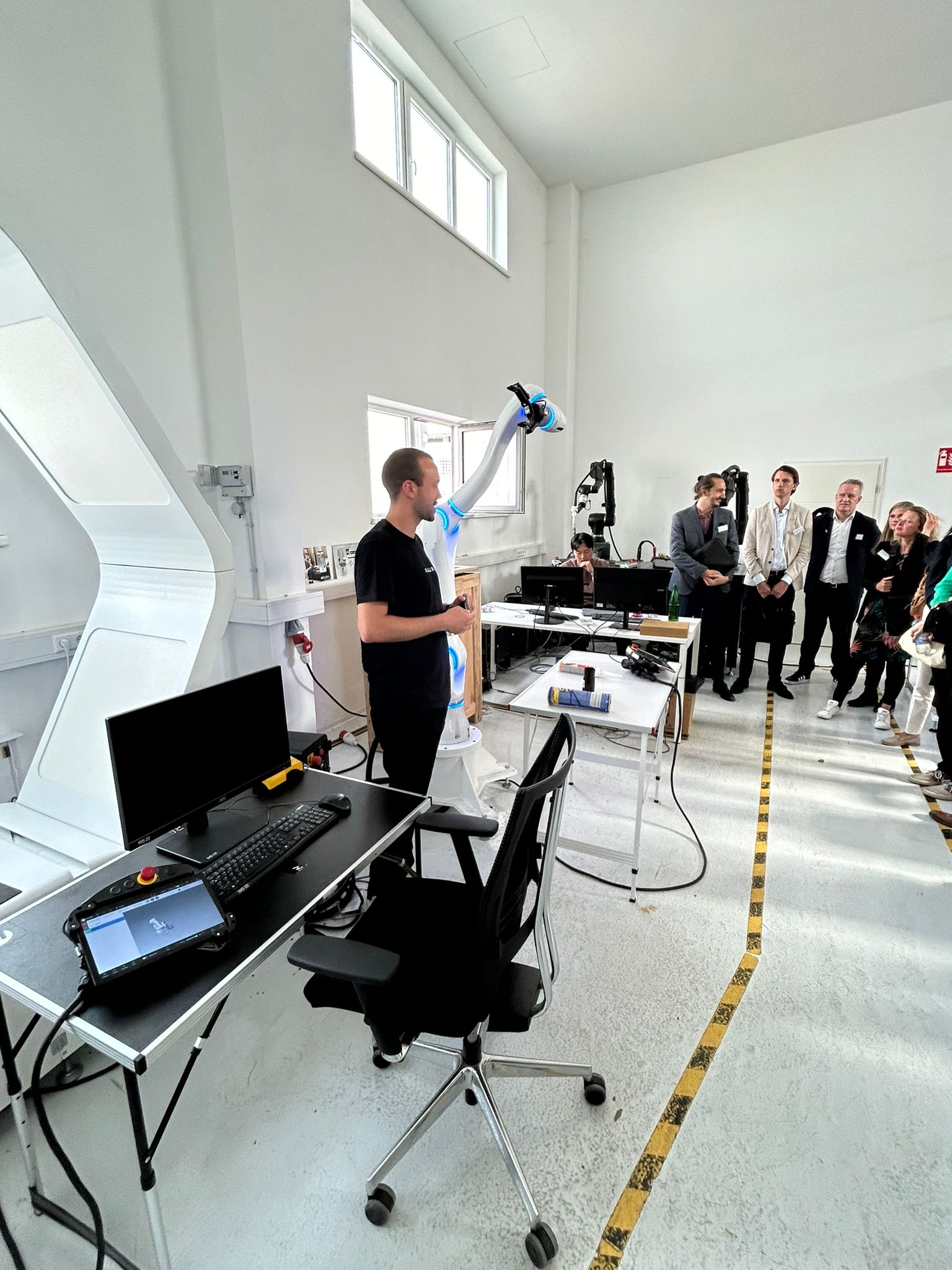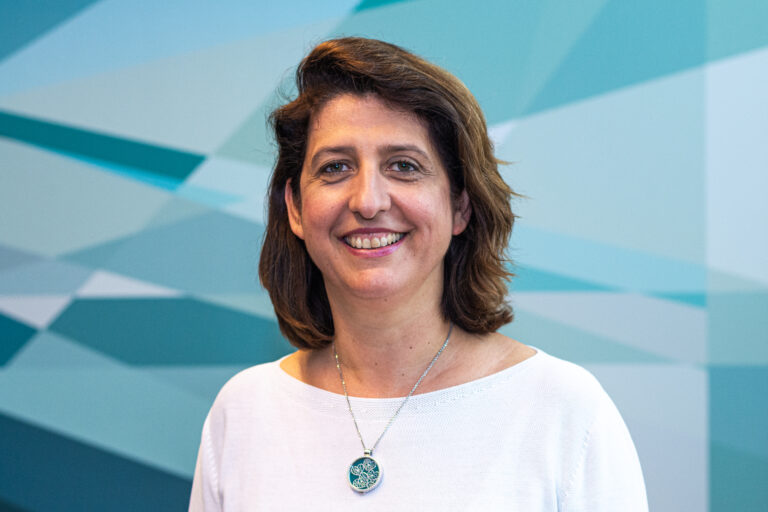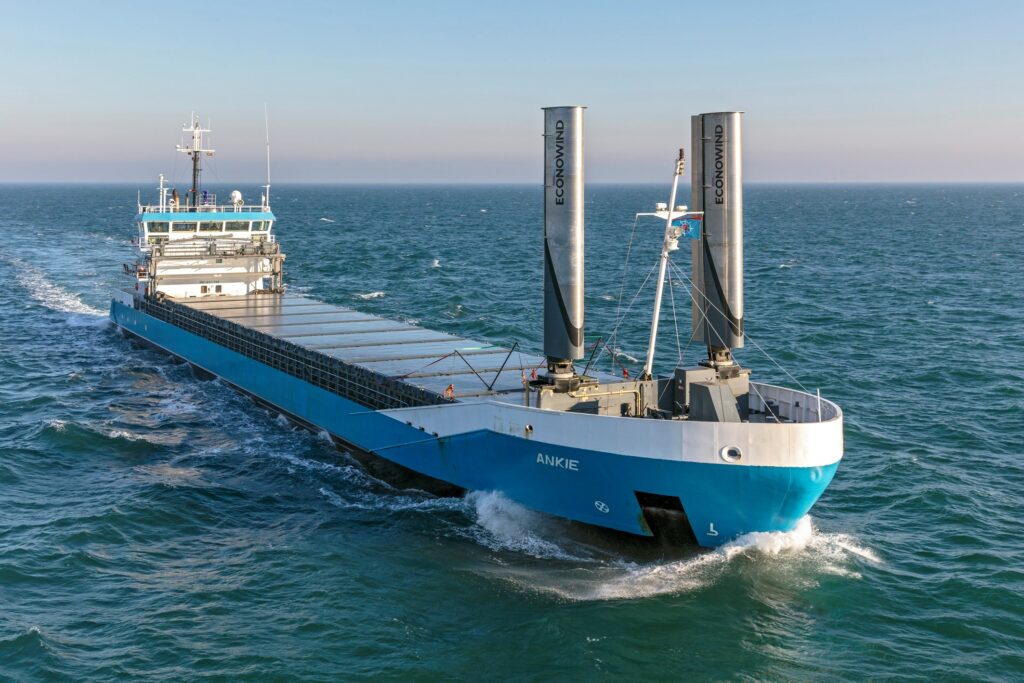What is your background?
“As CIO, the digital transformation of Avans University of Applied Sciences is one of my main areas of focus. Traditionally, educational institutions have not had much to do with IT in relation to learning, but new technologies are really touching the heart of education. This is now in the spotlight because of corona, but it is a development that has been going on for some time. The way we work within educational institutions is going to change dramatically. We need to start thinking and working more like a software company.”

What role does AI play in this?
“Both the physical as the digital part will be important in education. AI plays a very important role in this, because it allows you to connect two worlds. You see that every day. The way you drive is influenced by your navigation system, which in turn is fed by the behaviour of other road users. Your visit to the supermarket is also a continuous interaction between the physical and the digital aspects: with personalised offers, self-scanning – you name it. You also want to create this ‘digital dexterity’ in education: so that digital education also feels very personal and involved.”
How did you come to join the Netherlands AI Coalition?
“AI in education will not happen by itself. At Avans, we see the opportunities, and we do the first experiments. However, it is difficult to get past the first phase. In order to make progress with AI on a larger scale, you have to work together: with other educational institutions, with researchers, with suppliers, with the government. Via our Chairman of the Board, Paul Rüpp, I met Jeroen Visscher (leader of the Education working group of the NL AIC) last autumn. The NL AIC seems to be such an ecosystem. I immediately said ‘yes’ when I was asked this autumn to help build on the ambitions of the working group.”
How is the Education Working Group doing now?
“There is a lot of energy, but we are just at the beginning. We are still getting to know each other. After we started as a team of six people, we connected more people to the working group at the end of the year. In 2021, we started with 60 people from education, research, business and government. We quickly concluded that we first wanted to create an overview. A lot is happening: in primary education, in secondary education, at software suppliers. But how do you link all those initiatives and experiments together?”
Why is it so important to connect these initiatives?
“As I said, it is very difficult to get past the experimentation phase. Different parties need different things to really move forward. Companies are looking for ways to make money with AI. Educational institutions want to know how they can use AI in a meaningful and ethical way for students, teachers and in the field. Researchers need funding to do research. Governments need more insight before they can formulate concrete policies. That does not come together automatically, you have to work together.
What do you expect from the Netherlands AI Coalition?
“Here, all parties come together, the ‘quadruple helix’. This is the place to tackle plans integrally, so you can limit or divide the risks together. Because that is the biggest obstacle to scaling up AI: there are still too many uncertainties, making investments uncertain. With the NL AIC, you can gain experience with regard to appropriate legislation and regulations: which existing legislation hinders, what accelerates? Or on standards for IT and data. Who, for example, owns certain kind of information: the student, the educational institution, the software supplier? You want to know that before you invest further in a prototype.”
Is there also a social interest at stake?
“Yes, it does! I think that from the Netherlands, or rather from Europe, we now have to think and invest in AI that suits us. In AI that fits our norms and values. In China, AI seems to primarily serve the interests of the government. In the United States, AI seems to primarily serve the interests of business. I think Europe can offer a third way: AI serving society as a whole. The motto of the NL AIC also has this in it: ‘algorithms that work for everyone’. But then we have to hurry, because China and the US are moving very fast at the moment.”
How do you translate that into education: what should AI offer for education?
“In the working group we also want AI to serve our society. The higher the education level of a society, the higher the Gross Domestic Product and also the Gross Domestic Happiness. Within our working group we have said: AI in education should serve the student and teacher. We want AI to help students learn, for example through adaptive learning. And that teachers feel helped by AI, for example by saving them time and helping them to reflect on how they can make students learn optimally. We also wrote that down in our manifesto.”
What exactly are you working towards within the working group?
“The ultimate goal is to make these scalable AI solutions possible in education. It is sometimes difficult with these kinds of initiatives: how do you make sure that it doesn’t stop at just talking? That is why we also started with “doing”. We are formulating our implementation agenda on the basis of pilots that we are carrying out this year. Transparency and trust are the key. Acknowledging that everyone has their own interests at heart and at the same time keeping their eyes on the common goal.
And back to your own interest: what is the role of you and Avans?
“We have already had some great experiences with AI ourselves, for example, we had students create a first chatbot for support questions. We also have several professors who are active in the field of robotics, data science and ELSA labs. We contribute our knowledge and experience, as do the other participants. Together, we create an overview and can tackle plans in an integrated way.”
About the developments surrounding the Education working group: “The NL AIC was set up to connect all knowledge, ideas and initiatives around AI. The fact that we had all the parties from the quadruple helix at the table so soon after the start shows that we are on the right track. The 60 participants who have joined the working group show that there is a great need for this. So far, we have mainly focused on bringing together all the insights of the participants themselves. In March, we will take the next step: we will start a series of round tables in which students and teachers will discuss AI with the working group. In order to keep our curiosity alive, we will need to understand even better how AI can serve students and teachers. After all, that is the ultimate goal we have in mind.”
Do you want to become a participant of the NL AIC? On this page you will find more information.






